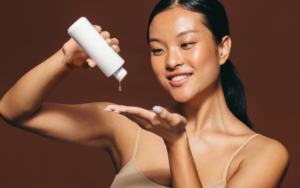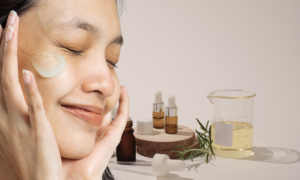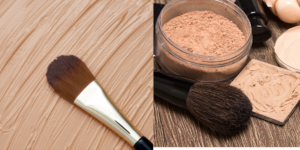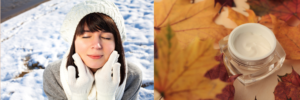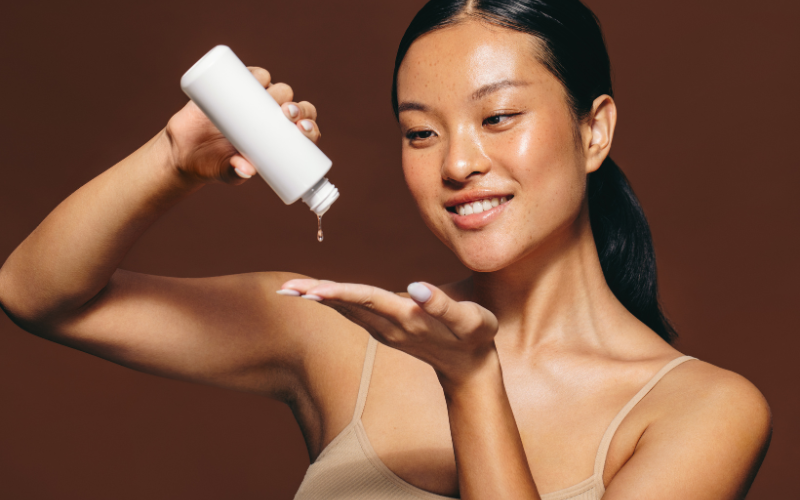Aging is a natural process, but taking care of your skin can help slow down its visible effects and keep your complexion looking youthful and radiant for longer. The skincare industry offers countless products claiming to have anti-aging benefits, but it can be challenging to know which ones are truly effective. The secret to a successful anti-aging skincare routine lies in the ingredients. By focusing on scientifically proven, high-quality components, you can create a routine that targets fine lines, wrinkles, pigmentation, and other signs of ageing.
In this blog, we’ll discuss the top ingredients in anti-aging skincare products. Each ingredient offers unique benefits, helping you maintain a youthful glow while addressing different aspects of skin ageing.
Understanding the Importance of Anti-Aging Skincare
Before diving into specific ingredients, it’s essential to understand why anti-aging skincare is necessary. As we age, our skin undergoes several changes:
- Loss of collagen: Collagen is the protein responsible for keeping skin firm and smooth. As we age, collagen production slows down, leading to sagging skin and wrinkles.
- Decreased cell turnover: Younger skin renews itself more quickly. As we age, this process slows, leading to dull, uneven skin tone.
- Reduction in elasticity: Elasticity, the skin’s ability to bounce back, diminishes with age, causing sagging and fine lines.
- Environmental factors: Sun exposure, pollution, and lifestyle habits like smoking can accelerate the aging process, contributing to premature signs of aging.
By incorporating the right ingredients into your anti-aging skincare routine, you can combat these effects and keep your skin looking youthful.
Top Ingredients to Look for in Anti-Aging Skincare
- Retinoids (Retinol)
Retinoids, derived from Vitamin A, are widely regarded as the gold standard in anti-aging skincare. Retinol, a common form of retinoid found in over-the-counter products, stimulates collagen production and accelerates cell turnover. This helps reduce fine lines, wrinkles, and age spots while improving skin texture and tone.
Benefits of Retinoids:
- Boosts collagen production
- Reduces fine lines and wrinkles
- Smooths skin texture
- Fades hyperpigmentation
When starting with retinoids, it’s essential to begin with a lower concentration and gradually increase usage to avoid irritation. Retinol should be applied at night, as it can make your skin more sensitive to the sun.
- Hyaluronic Acid
Hyaluronic acid is a naturally occurring molecule in the skin that helps retain moisture, giving the skin a plump and hydrated appearance. Unfortunately, as we age, the skin’s ability to produce hyaluronic acid decreases, leading to dryness and fine lines. Including products with hyaluronic acid in your anti-aging skincare routine helps maintain moisture levels, reducing the appearance of wrinkles and creating a smoother, more youthful complexion.
Benefits of Hyaluronic Acid:
- Deeply hydrates the skin
- Plumps the skin, reducing the appearance of fine lines
- Improves skin elasticity
- Helps skin retain moisture
Look for serums or moisturizers that contain hyaluronic acid as a key ingredient, as it works well on all skin types and provides immediate hydration.
- Vitamin C
Vitamin C is a powerful antioxidant that plays a vital role in anti-aging skincare by protecting the skin from environmental damage, particularly from UV rays and pollution. In addition, Vitamin C promotes collagen production and helps brighten the skin, reducing dark spots and promoting an even skin tone.
Benefits of Vitamin C:
- Neutralizes free radicals that cause skin damage
- Promotes collagen synthesis
- Brightens the skin and fades hyperpigmentation
- Protects against sun damage
For best results, use a Vitamin C serum in the morning to shield your skin from daily environmental aggressors. Be sure to follow up with sunscreen for added protection.
- Peptides
Peptides are amino acids that serve as the building blocks of proteins like collagen and elastin in the skin. Incorporating peptides into your anti-aging skincare routine can help stimulate the production of these proteins, resulting in firmer, more youthful-looking skin. Peptides also help repair skin damage, making them an excellent ingredient for maintaining a smooth complexion.
Benefits of Peptides:
- Stimulates collagen and elastin production
- Firms and smooths the skin
- Reduces fine lines and wrinkles
- Helps repair skin barrier function
Peptides are suitable for most skin types and can be found in a wide range of products, including serums, moisturizers, and eye creams.
- Niacinamide
Niacinamide, also known as Vitamin B3, is a multi-tasking ingredient with numerous anti-aging benefits. It helps improve skin elasticity, enhances the skin barrier, reduces redness, and minimizes the appearance of fine lines and wrinkles. Niacinamide is also known for its anti-inflammatory properties, making it a great option for those with sensitive or acne-prone skin.
Benefits of Niacinamide:
- Improves skin elasticity and texture
- Reduces the appearance of fine lines and wrinkles
- Strengthens the skin barrier
- Minimizes redness and hyperpigmentation
Niacinamide can be used both morning and night and pairs well with other anti-aging skincare ingredients like retinol and Vitamin C.
- Alpha Hydroxy Acids (AHAs)
AHAs, including glycolic acid and lactic acid, are exfoliating acids that work by removing dead skin cells from the surface of the skin. This exfoliation promotes cell turnover, helping to improve skin texture, reduce the appearance of fine lines, and enhance the overall radiance of your skin.
Benefits of AHAs:
- Exfoliates dead skin cells for smoother skin
- Improves skin texture and tone
- Reduces the appearance of fine lines and wrinkles
- Promotes cell renewal
Using AHA-based products a few times a week can help maintain a smooth, glowing complexion, but be cautious if you have sensitive skin, as these acids can cause irritation if overused.
- Sunscreen
Though not typically thought of as an “ingredient,” sunscreen is perhaps the most critical component of any anti-aging skincare routine. Exposure to UV rays is one of the leading causes of premature ageing, contributing to wrinkles, dark spots, and loss of elasticity. Applying a broad-spectrum sunscreen with at least SPF 30 every day is crucial for protecting your skin from sun damage and preventing further signs of ageing.
Benefits of Sunscreen:
- Protects skin from harmful UV rays
- Prevents premature wrinkles and sunspots
- Shields against skin cancer
- Enhances the effectiveness of other anti-aging ingredients
Also Read: Skincare: 5 suggestions for healthy pores and skin
Conclusion
Building an effective anti-aging skincare routine doesn’t have to be overwhelming. By focusing on key ingredients like retinoids, hyaluronic acid, Vitamin C, peptides, niacinamide, AHAs, and sunscreen, you can address various aspects of skin ageing and maintain a youthful, radiant complexion. Remember that consistency is key—regular use of these ingredients will yield the best results over time. Keep your skin nourished, hydrated, and protected to enjoy healthy, glowing skin for years to come.



